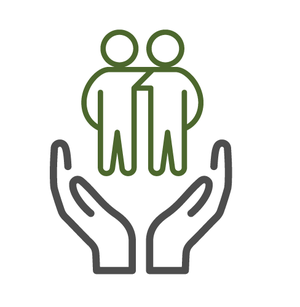What is the RSRI?
The Refugee Self-Reliance Initiative (RSRI) is a multi-stakeholder collaboration that promotes opportunities for refugees around the world to become self-reliant and achieve a better quality of life, while simultaneously advocating for the full enjoyment of their rights. Our aim is to collectively reach five million refugees with self-reliance programming in five years and, in the process, identify the most conducive environments, effective models, and accurate measurements to aid global expansion of self-reliance opportunities.
The Refugee Self-Reliance Initiative was co-founded by RefugePoint and The Women’s Refugee Commission and is hosted by RefugePoint.
We believe that…
Refugees should not have to wait to lead lives with dignity, which for many means supporting themselves and their families.
Refugees deserve the opportunity to exercise their rights and contribute to the social and economic fabric of their host countries while awaiting solutions to their plight.
Host countries and communities should be supported in order to benefit from the social and economic engagement of refugees, enhancing overall peace, security, and prosperity.
How did the RSRI get started?
RefugePoint and the Women’s Refugee Commission came together in November 2015 to compare work on their respective measurement tools: RefugePoint’s Self-Reliance Measurement Tool and the Women’s Refugee Commission’s Wellbeing and Adjustment Index. Finding many similarities between the two tools and a shared interest in the topic, they co-presented their work at the Solutions Alliance Roundtable in Brussels in February 2016. Encouraged by the enthusiastic response from UNHCR, government, NGOs, and researchers from across the field and finding no existing coordination efforts around refugee self-reliance, the Women’s Refugee Commission and RefugePoint created the Self-Reliance Community of Practice in May 2016.
The Community of Practice gathered in March 2017 for the first in-person meeting, where fifteen institutional participants agreed on a definition, principles, and measurement parameters for self-reliance. RefugePoint and the Women’s Refugee Commission took that collective input and began creating the Self-Reliance Index, the further development process of which is described here. In September 2018, the Refugee Self-Reliance Initiative formally launched during the U.N. General Assembly in New York. Over the last four years, the Community of Practice has since grown to over 25 members, and they connect and share learnings over regular learning calls.
Why is refugee self-reliance important?
The increase in global displacement to its highest-recorded levels, coupled with the growing length of displacement and the lack of sustainable solutions for refugees, is leaving increasing numbers of people living in limbo. Most refugees tell us that they want to take care of their own needs and those of their families. They request support to build independent lives in their new homes - whether their stay is temporary or permanent.
At the same time, momentum on the concept of refugee self-reliance has been building, and several recent high-level inter-governmental initiatives emphasize the need to enhance self-reliance opportunities in tandem with increased rights enjoyment for refugees, including the 2030 Agenda for Sustainable Development and the Global Compact on Refugees.
Despite these positive advances, there are significant hurdles to achieving this goal, including restrictive host country policies and legal frameworks; funding streams that perpetuate indefinite “emergency aid”; and a lack of knowledge and evidence to support effective programming.
The Refugee Self-Reliance Initiative is committed to addressing these challenges and seeks to promote opportunities for self-reliance as a way for refugees to regain agency over their finances and futures while supporting the peace, stability, and prosperity of their host communities.
want to learn more?
Check out our resources page.







